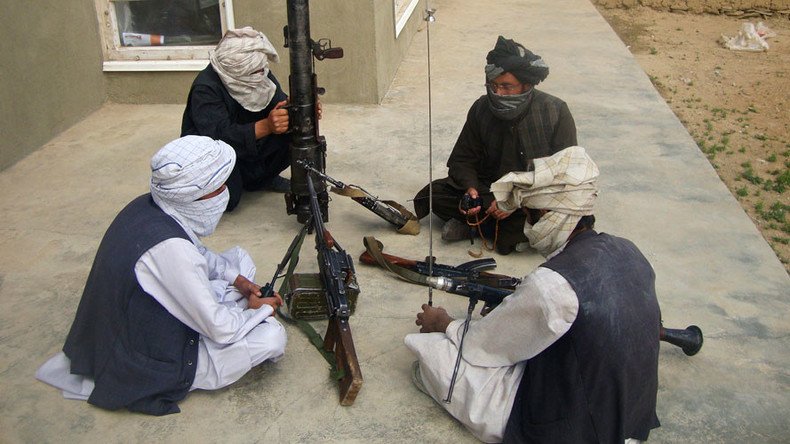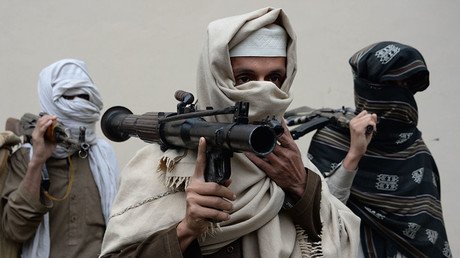Taliban & Afghan govt resume secret peace talks in ‘trouble-free atmosphere’ – report

Senior Taliban leaders and Afghan government officials have reportedly resumed secret talks in the Gulf state of Qatar, in what could be the two adversaries’ first attempt to reach peace since 2013, when a Taliban leader died from tuberculosis.
Representatives of both sides held two ground-breaking meetings in September and October at the Taliban’s office in Qatar’s capital, Doha, the Guardian reported on Tuesday, citing senior sources within the militant group and the Afghan government.
Present at both meetings was Mullah Abdul Manan Akhund, brother of Mullah Omar, the outspoken Taliban leader who was in charge of the Islamist movement from its creation until his death in 2013.
Akhund’s interlocutor at the first meeting in early September was Mohammed Masoom Stanekzai, chief of Afghani intelligence, according to the newspaper. By sending high-profile officials to Doha, both the Taliban and Kabul are apparently signaling the importance they attach to the talks.
An unnamed Taliban representative told the Guardian that the September meeting “went positively and was held in a trouble-free atmosphere” and could be a promising step forward, given that all contacts between the sides had been frozen for over three years.
The Taliban found itself in disarray earlier this year after Mullah Akhtar Mansour, the successor to Mullah Omar, was killed in a US drone strike.
Some hawkish factions within the movement have openly accused the Afghani government of being a “puppet regime” while continuing with ground offensives in the country’s north and northeast.
In recent weeks, Taliban militants captured the provincial capital of Kunduz for the second time and now threaten Lashkar Gah in Helmand. Deadly terror attacks orchestrated by the Taliban have also targeted Afghanistan’s military and police forces, as well as civilians.
Despite the unremitting violence, both sides convened in Doha in October for their second meeting, which was also attended by a US diplomat, the Guardian wrote.
A member of the Quetta Shura, the Taliban’s supreme council, said that dispatching Mullah Akhund to Doha was a sign that moderate factions in the insurgency want to proceed with peace talks.
15 years on: What US legacy in Afghanistan?
“His presence made the talks more notable and shows that both the military and political Taliban are on the same page,” he said.
The Shura member also claimed that the presence of the US diplomat made the conversation more sincere and to the point, though former Afghan President Hamid Karzai has recently accused Washington of double dealing and being reluctant to combat terror groups.
To further bolster the authority of the Doha talks, Mohammad Yaqoob, Mullah Omar’s son, is reportedly expected to join the negotiations soon, a Taliban source said, according to the Guardian.
War without end: Things to know as #Afghanistan invasion turns 15 https://t.co/UTwOLQarvSpic.twitter.com/fKFqADqkOi
— RT America (@RT_America) 7 октября 2016 г.
Details about the subjects discussed at the peace talks have not been disclosed, and Ismail Qasemiyar, the senior member of the High Peace Council charged with overseeing the negotiations, denied any knowledge of the Doha meetings.
Despite the resumption of talks, the Afghan government is not in the position to dictate terms.
In late September, it was revealed that the Taliban controls over 10 percent of the country’s population, while Army General John Nicholson, the head of NATO’s Resolute Support mission in Afghanistan, said the Afghan security forces that took over from the US in 2014 remain under constant pressure from the insurgents.
Russian Foreign Ministry officials have in the meantime denied any knowledge of the talks.
"I know nothing about it and hear of the news for the first time," Zamir Kabulov, the president's special envoy for Afghanistan, told Interfax later on Tuesday.













